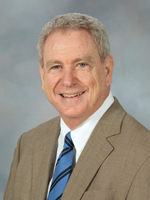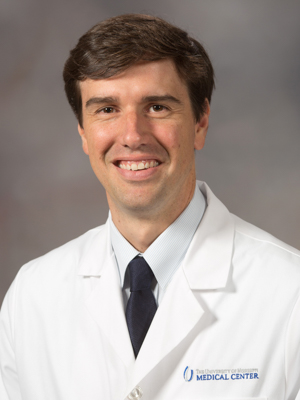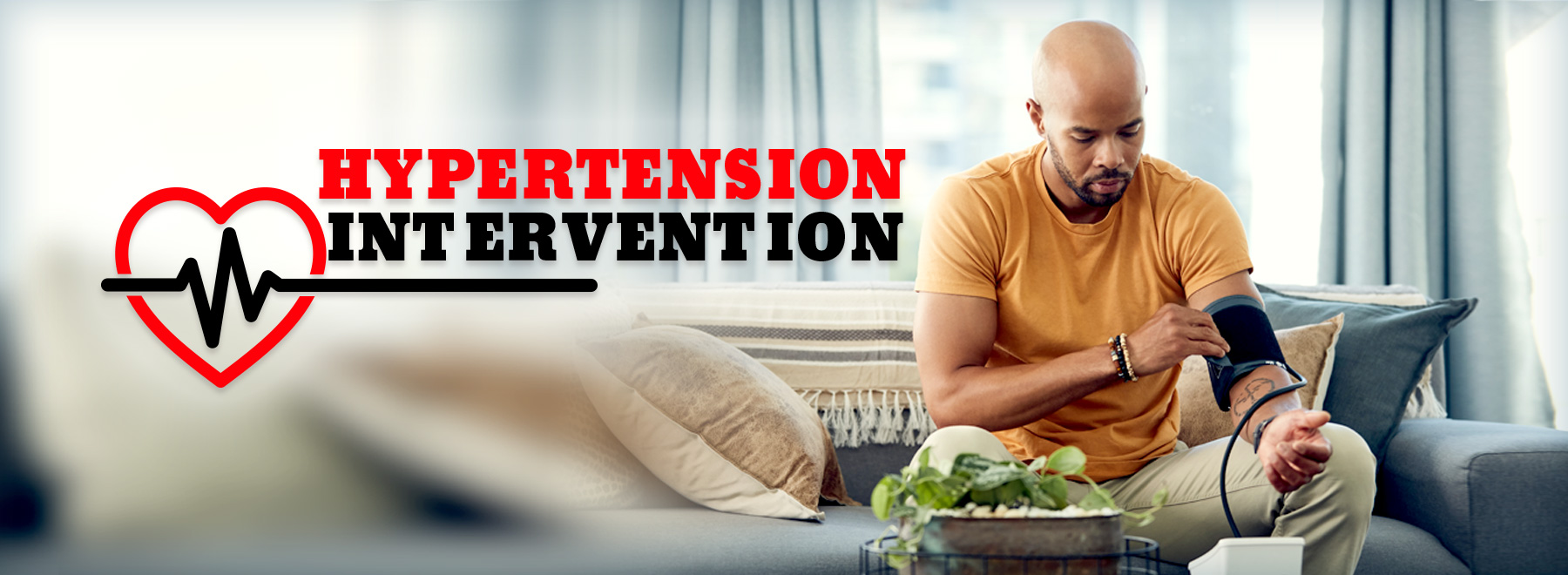For low-risk patients with high blood pressure, doctors say treating early is ideal
It’s never too early to get your high blood pressure under control, even if you’re otherwise healthy.
University of Mississippi Medical Center doctors led a scientific statement published April 29, including guidelines for managing hypertension in adults who have a relatively low-risk of cardiovascular disease over their next decade of life.

“We know that people with high blood pressure, even those with a low ten-year risk, are still at a higher lifetime risk for cardiovascular disease. We need to start treating that hypertension as early as possible,” said Dr. Daniel Jones, UMMC vice chancellor emeritus and lead author of the paper.

In 2017, the American Heart Association and American College of Cardiology released new guidelines for diagnosing hypertension. They lowered the threshold for stage 1 hypertension from 140/90 mmHg to 130/90 mmHg. With this change, a majority of Mississippi adults now meet criteria for hypertension, said Dr. Donald “Trey” Clark, assistant professor of medicine and co-author.
People with high blood pressure have a higher risk of heart attack, heart failure, stroke, kidney disease and peripheral artery disease later in life.
Clark said that the purpose of their recent scientific statement is to address the “smaller but notable” low-risk population whose stage 1 hypertension is not under control after six months of lifestyle changes. This group includes about 10 percent of hypertensive adults, including many aged 40 or younger.
“Lifestyle interventions include eating a heart-healthy diet low in salt, increasing physical activity, losing weight and decreasing alcohol consumption,” Clark said. “If that trial doesn’t work, the question becomes what do we do next?”
Physicians and scientists make treatment recommendations based on evidence drawn from randomized clinical trials. For adults with stage 1 hypertension, Jones and Clark said there were gaps in the evidence.
“A majority of clinical trials are done in a higher-risk or older population because adverse events are more common in those groups and that makes the study easier to conduct,” Clark said. “To achieve the event rates you need for a sufficiently powered study in lower-risk adults, you need a much larger or much longer trial.”
To address this issue, Jones and co-authors looked at different kinds of studies to develop recommendations for this group. They concluded that after six months of trying to move more and eat less, doctors and patients should consider treating hypertension with medication in addition to lifestyle changes.
Clark said that the first step to healthy blood pressure is “knowing your numbers.”
“Know what’s normal or abnormal. If your blood pressure is abnormal, you and your doctor should center the conversation on next steps for treatment. Have a detailed, thorough conversation about lifestyle changes and have a plan for a follow-up visit.
“High blood pressure is called a silent killer for a reason. You typically don’t feel it when you’re blood pressure is elevated,” Clark said. “Instead, rely on good high quality measurements and develop a plan with your doctor to track these measurements.”
UMMC is at the forefront of testing and dispatching innovative ways to track blood pressure using remote monitoring and telehealth, Clark said.
Jones, a long-time hypertension specialist and former president of the American Heart Association, says a good, productive conversation should cover the reasons why controlling hypertension is important.
“Over time, I have changed my strategy,” he said. “With older adults, I talk about longevity. With younger adults, I used to speak about lifetime risk [for cardiovascular disease]. Instead, I’ve started talking about dementia, because almost everyone knows someone who’s been affected.”
There is now a wide body of scientific literature – including work by UMMC physicians and scientists – that show a relationship between increased blood pressure and risk for cognitive decline and dementia.
“If we treat blood pressure early, then we can reduce the lifetime risk of dementia,” Jones said.
However, there are other challenges to keeping your blood pressure in check, Jones said. Part of the reason for Mississippi and the United States’ high rates of hypertension is what he calls a “toxic food environment,” particularly in terms of sodium.
“Most of the salt that people consume in their food is already there when it’s presented to them,” Jones said, including restaurant meals and packaged and processed foods. “There’s little you can do for day-to-day control of sodium, except avoiding these foods.”
He and Clark recommend the DASH eating plan, short for Dietary Approaches to Stopping Hypertension, which emphasizes vegetables, fruits, whole grains and low-fat proteins while limiting foods with added salt.
Jones also says that improving health education in schools is also a key component. The Centers for Disease Control and Prevention estimates that about 10 percent of teenagers have elevated blood pressure, which puts them at increased risk for hypertension and cardiovascular disease as adults.
And while medical science has made tremendous strides in preventing and treating hypertension, there’s still much more work to be done.
“We know that good lifestyle choices are protective, we have many medicines that are effective,” Jones said. “The biggest knowledge gap right now are developing methods for intervention and creating health systems that address the problem.”
The above article appears in CONSULT, UMMC’s monthly e-newsletter sharing news about cutting-edge clinical and health science education advances and innovative biomedical research at the Medical Center and giving you tips and suggestions on how you and the people you love can live a healthier life. Click here and enter your email address to receive CONSULT free of charge. You may cancel at any time.



